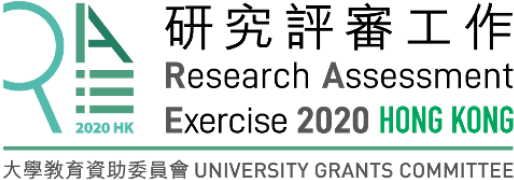Unit of Assessment:
Research categories:
?Clinical Medicine
Rehabilitation (1)
Social Sciences, General
Education & Educational Research (1)
Education, Special (1)
Case Study
Development and evaluation of a new service delivery model leads to policy change in preschool education
1. Summary of the impact
High-quality early intervention is critical to the development of children with special educational needs (SEN), but until recently such intervention was not readily available in Hong Kong. To rectify this, a collaborative project was set up in 2014 between the University of Hong Kong and the Heep Hong Society to develop and evaluate a comprehensive service delivery model. The positive outcomes of this model convinced the government to extend it to 450 preschools in 2015 and to turn it into permanent provision for all preschools in 2018. The 13,000 preschoolers with SEN in Hong Kong are all entitled to the service.
2. Underpinning research
Until 2015, the services offered to preschoolers with SEN in Hong Kong were inadequate. Half of them (about 6,000) were on a waiting list for services and the average waiting time ranged from 13 to 19 months. While waiting, most of the parents had to enrol their children in regular preschools where little provision was made for those with SEN. In addition to the problem of limited access to services, there were difficulties with the service delivery model for early childhood intervention because preschool rehabilitation services were separate from preschool education. This undermined the continuity of services and thwarted collaboration between therapists in clinical settings and educators in school settings. The compartmentalization of services for children with SEN is not unique to Hong Kong; it is a common phenomenon around the world. Early intervention services are usually separate from early childhood special education programmes, despite the demands of advocates of ecological systems theory for close collaboration in the provision of services. In Hong Kong, the most cogent advocacy came from the educational psychology profession, in which the systems approach is highly revered. Prof. Lam, the principal investigator of this project, has been a trainer of educational psychologists in the University of Hong Kong since 1994 and is a strong advocate in this respect (3.1, 3.2, 3.3, 3.4).
To address the inadequacy and fragmentation of services for preschoolers with SEN in Hong Kong, a collaborative project between the University of Hong Kong and the Heep Hong Society, a children’s education and rehabilitation organisation, developed a comprehensive service delivery model and put it forward for a two-year trial run in 2014 with funding of HK$10 million from the Lee Hysan Foundation (3.5). After a thorough literature review, (3.6) the project team identified six characteristics of effective early intervention and built them into the comprehensive service delivery model: 1) multidisciplinary approach; 2) integration of services across different contexts; 3) multimodal intervention with direct and indirect services; 4) capacity building for systems; 5) inclusive environment; and 6) high programme intensity. With these six characteristics, the comprehensive service delivery model integrates services across the important ecological contexts for child development and includes both direct and indirect services. Direct services (e.g., speech therapy and physiotherapy) are provided to children in special education training centres, whereas indirect services (e.g., instructional consultation and parent education) are provided to children through support to their teachers in the school context and to their parents in the family context. This comprehensive service delivery model is a deliberate response to the compartmentalization of services for preschoolers with SEN.
The project team was headed by Prof. Lam (3.4) and her past students who worked as senior educational psychologists in the Heep Hong Society. They developed, implemented, and evaluated this service delivery model in 10 preschools. These preschools were the testing ground for what the team members had advocated for many years. The results of the evaluation not only provided evidence supporting their advocacy but also a reference point for policymakers in preschool education (3.6).
3. References to the research
3.1. Lam, S.-f. (2005). The growth and development of school psychology in Hong Kong. In C. L. Frisby & C. R. Reynolds (Eds.), Comprehensive handbook of multicultural school psychology(pp. 1107 – 1127). Hoboken, New Jersey: John Wiley & Sons.
3.2. Lam, S.-f. (2006). Educational psychology in Hong Kong. In S. R. Jimerson, T. Oakland, & P. Farrell (Eds.), The handbook of international school psychology (p.147-157). Thousand Oaks, California: Sage.
3.3. Lam, S.-f., & Cheng, R. W.-y. (2007). Special education in Hong Kong. In C. Reynolds & E. Fletcher-Janzen (Eds.), Encyclopedia of special education (3rd ed.) (pp. 1055-1057). New York: John Wiley & Sons.
3.4. Lam, S.-f. (2014). The preparation of educational psychologists in Hong Kong. International Journal of School and Educational Psychology, 2, 179-184. DOI: 10.1080/21683603.2014.934615
3.5. Grant on early intervention and integrated support service. Lee Hysan Foundation (2014 – 2016), HK$10,000,000. Principal investigator: Lam, S.-f.
3.6. Lam, S.-f., Tsang, N., Keung, Y.-C., Tong, Y., Mok, F., Chiu, A., Soh, D. (2019). A Comprehensive service delivery model for preschoolers with special educational needs: Its characteristics and effectiveness. Research in Developmental Disabilities, 85, 20-30. https://doi.org/10.1016/j.ridd.2018.10.005
4. Details of the impact
In the face of the serious inadequacy of services and strong demand from parent advocacy groups, the Hong Kong Government harboured the intention (5.1) to improve early intervention for preschoolers with SEN. The comprehensive service delivery model developed by the University and the Heep Hong Society was thus an important reference point for policymakers. Hong Kong’s then Chief Secretary for Administration, Ms. Carrie Lam, paid particular attention to the project and visited one of the participating preschools in April 2015. She observed how interventions were implemented and discussed the services with the main stakeholders including children, parents, teachers, principals, therapists, and psychologists. After the visit, she requested the then Secretary for Education, Mr. Eddie Ng, to make a similar visit to observe the services first-hand and he did so in May 2015.
The evaluation report on the services was completed in October 2015 (5.2). The evaluation was a quasi-experiment with a control group of 60 matched to the experimental group that also numbered 60. The experimental group made significant improvements in cognitive skills, receptive language skills, expressive language skills, gross motor skills, fine motor skills and self-direction skills at the end of a school year. On average, the experimental group scored 0.45 standard deviation (SD) higher than the control group across the outcomes after a year of services. This was higher than the average programme-level effect size of 0.27 SD found in a previous meta-analysis of 438 preschool intervention programmes (5.3). The positive comments from parents and teachers were widely reported by the mass media (5.4, 5.5, 5.6). For example, a parent testified that his son had become “more confident, happy, and social as he was making substantial learning progress”. The benefits also extended from the children who received the services to the systems in which they grew and developed. Their teachers had higher self-efficacy at the end of the school year and their school principals agreed that the services had reinforced their school systems and empowered their teachers in helping children with SEN. When teachers are empowered and the school’s capacity is enhanced, all children, not only those who are diagnosed with SEN, will benefit.
On the day Ms. Lam received the report (5.2), she wrote to the Heep Hong Society expressing her firm belief in the new model and giving assurance that she would seek funding to deliver the services on a permanent basis (5.7). In November 2015, the government launched a two-year Pilot Scheme for On-site Pre-school Rehabilitation Services with funding of HK$420 million from the Lotteries Fund (5.8). The model developed by the project became the prototype for the services offered by the 16 social welfare organizations that joined the scheme. In total, these organizations provided training to more than 2,900 preschoolers in more than 450 preschools in Hong Kong. This pilot scheme reduced the number of children on the waiting list for services by half. It also covered more than half of the preschools in Hong Kong.
The positive results from Prof. Lam’s project were replicated in this two-year pilot scheme (5.9). Children who received the services showed significant improvement in language skills, gross motor skills, fine motor skills, social-emotional skills and cognitive skills. A questionnaire sent to 4,381 parents or caregivers indicated that 98% of them were satisfied with the services. The positive results provided a springboard for the government to further expand the services. In July 2018, it decided to extend the services to all preschools in Hong Kong by August 2018 (5.10). The number of service places has increased from 2,900 to 7,000 to achieve a zero-waiting time policy objective for preschool rehabilitation services. The annual budget for the service regularization is HK$490 million.
As well as ending the waiting list for services among preschoolers with SEN in Hong Kong, the regularization of services also means that all 881 local preschools in Hong Kong are entitled to receive them. As capacity building for the school system is one of the characteristics of this service delivery model, the beneficiaries are not only the 13,000 children who have been diagnosed with SEN but also the other 150,000 children who study with them in the same preschools.
The comprehensive service delivery model developed by the project has addressed the problems of compartmentalization that plague early intervention services not only in Hong Kong but also in other parts of the world. It reveals the importance of the integration of services across different ecological contexts and sheds light on the future direction of services for preschoolers with SEN.
5. Sources to corroborate the impact
(Full URLs have been provided for all weblinks. Copies of all source materials are available upon request if external weblinks are no longer operational.)
5.1. Panel on Welfare Services, Legislative Council (2014). Updated background brief prepared by the Legislative Council Secretariat for the meeting on 14 April on preschool rehabilitation services. LC Paper No. CB(2)1255/13-14(07). Retrieved from http://www.legco.gov.hk/yr13-14/english/panels/ws/papers/ws0414cb2-1255-7-e.pdf.
5.2. Lam, S.-f. (2015). Evaluation report: The pioneering services of Heep Hong Society to children with special needs in kindergartens. Hong Kong: The University of Hong Kong.
Retrieved from
https://www.psychology.hku.hk/uploads/documents/KE/HKU_Evaluation_Report_on_HHS_Pioneering_Services.pdf
5.3. Shager, H. M., Schindler, H. S., Magnuson, K. A., Duncan, G. J., Yoshikawa, H., & Hart, C. M. D. (2013). Can research design explain variation in head start research results? A meta-analysis of cognitive and achievement outcomes. Educational Evaluation and Policy Analysis, 35, 76-95. doi: 10.3102/0162373712462453
5.4. The pioneering project for preschoolers with SEN is effective. (2015, October 25). Oriental
Daily, p. A16. Retrieved from
http://orientaldaily.on.cc/cnt/news/20151025/00176_031.html
5.5. Heep Hong Society’s early intervention support children with SEN. (2015, October 25). Sing Pao, p. A9.
5.6. Heep Hong Society’s pioneering project provides instructional consultation to teachers. (2015, October 25), Sun, p. A14.
5.7. Lam, C. (personal communication, 2015, October 20). [E-mail to Nancy Tsang, Director of Heep Hong Society]. Re: Evaluation report on support for children with SEN in kindergartens.
5.8. Government Information Services. (2015, November 14). Launching of Pilot Scheme on On-site Pre-school Rehabilitation Services this month. Retrieved from
http://www.info.gov.hk/gia/general/201511/14/P201511140495.htm
5.9. Social Welfare Department (2018). Final report of the on-site pre-school rehabilitation
services (OPRS) consultancy study. Retrieved from
https://www.swd.gov.hk/oprs/common_file/Final%20Report-OPRS%20Consultancy%20Study_2018.pdf
5.10. Government Information Services. (2018, July 2). Caring hands for children. Retrieved from
https://www.news.gov.hk/eng/2018/06/20180629/20180629_142626_761.html?type=feature

